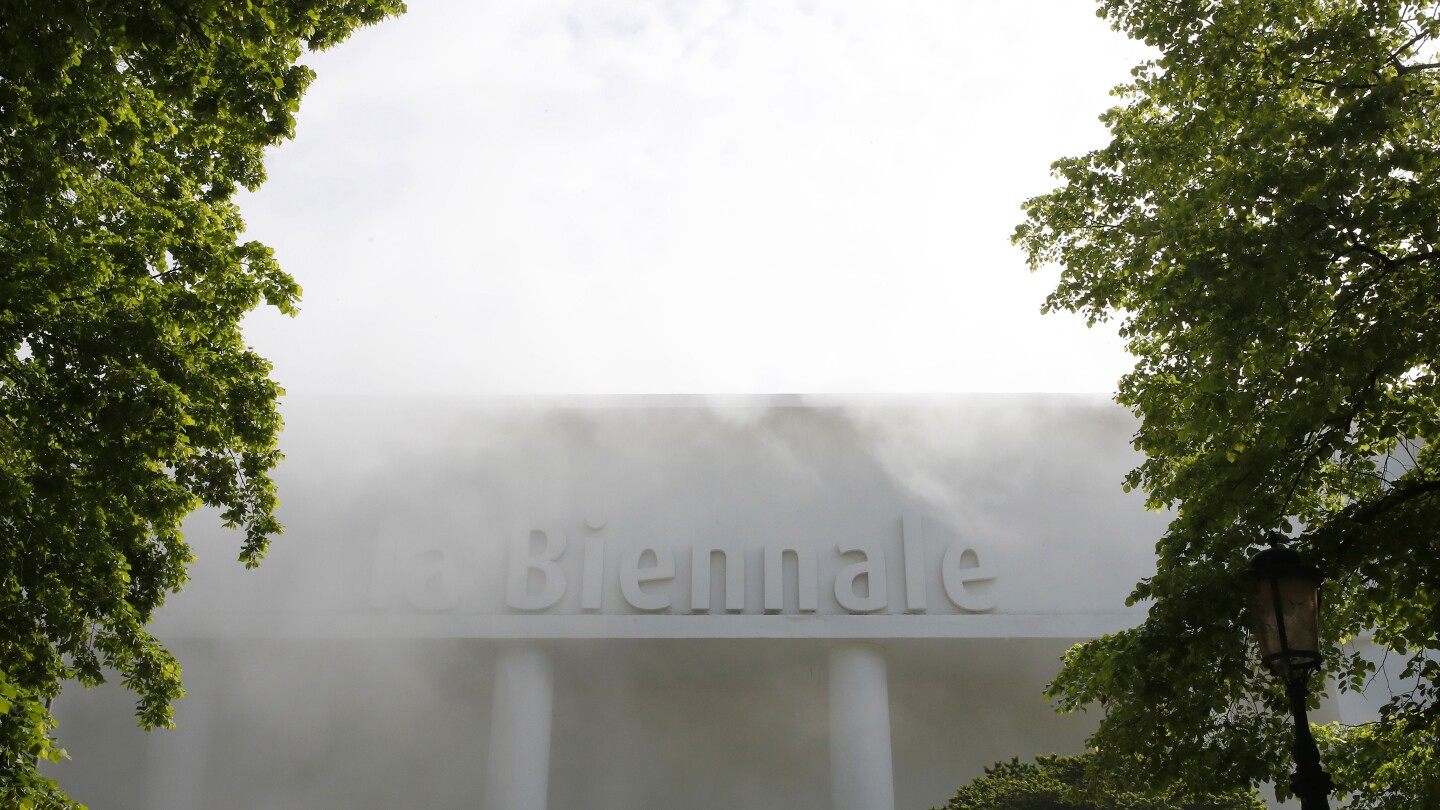MILAN (AP) — Thousands of artists, curators and critics have signed an open letter calling on the Venice Biennale to exclude the Israeli national pavilion from this year’s contemporary art fair due to the war in Gaza, but Italy’s culture minister firmly backed Israel’s participation.
The online letter was signed by more than 17,000 people through Wednesday, which included current and past Biennale participants as well as winners of the Turner Prize, an annual prize presented to a British visual artist.
The Israeli Culture Ministry had no immediate comment.
Italian Culture Minister Gennaro Sangiuliano expressed solidarity with Israel in a statement Tuesday, saying it “not only has the right to express its art but has the duty to bear witness to its people precisely in a moment during which it was struck hard by merciless terrorists.”
The letter, by an ad-hoc group called “Art Not Genocide Alliance,” noted that the Biennale had discouraged South Africa’s participation due to the apartheid state from 1950-1968 and put a ban in place after the U.S. resolution suspending “exchanges with the racist regime” until apartheid ended. It also noted the Biennale’s support for Ukraine since the 2022 Russian invasion. Russian artists withdrew their participation in 2022.
“The Biennale has been silent about Israel’s atrocities against Palestinians,’’ the letter said. “We are appalled by this double standard.”
Signatories include the 2023 Turner Prize winner Jesse Darling, who participated in the 2019 Biennale, as well as Faisal Saleh, the director of the Palestine Museum US who said a proposed exhibit for this edition was rejected.
Israel is among 88 national participants in the 60th Venice Biennale of contemporary art, which runs from April 20-Nov. 24. The exhibition in the Israeli Pavilion is titled “Motherland” by artist Ruth Patir.
Palestinian artists are participating in collateral events, and will appear in the main show, titled “Foreigners Everywhere” curated by Adriano Pedrosa, the artistic director of Brazil’s Sao Paulo Museum of Art.
___
Associated Press writer Julia Frankel in Jersusalem contributed.

